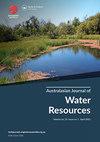智能水计量:采用、监管和社会考虑
IF 2.2
Q2 WATER RESOURCES
引用次数: 11
摘要
摘要近几十年来,智能水计量技术在水管理中的应用越来越多。采用智能水表的理由主要是出于节水和相关问题(例如泄漏检测)的工程和效率考虑。在消费者层面,这可以改善反馈,从而使客户更好地控制消费和家庭支出。智能水表的采用率取决于许多因素,如初始成本。随着技术的成熟和更多的选择,成本预计会降低。该技术的采用率预计也将受到各种监管和社会因素的影响。本文的目的是审查未来可能影响智能水计量技术采用的监管和社会方面,重点关注澳大利亚。这些方面的例子包括隐私和健康问题、社会接受和沟通策略。预计本文将围绕智能水表的采用引发一场健康的辩论,以帮助水务部门实现从传统水表向智能水表的平稳过渡。本文章由计算机程序翻译,如有差异,请以英文原文为准。
Smart water metering: adoption, regulatory and social considerations
ABSTRACT In recent decades, the adoption of smart water metering technology for water management has increased. The case for the adoption of smart water meters is mainly motivated by engineering and efficiency considerations around water conservation and related issues, for instance leak detection. At a consumer level, this can lead to improved feedback resulting in better customer control over consumption and household expenditure. The rate of adoption of smart water meters is dependent on many factors such as initial cost. The cost is expected to reduce as the technology matures and more options become available. The rate of adoption of the technology is also expected to be shaped by a variety of regulatory and social considerations. The purpose of this paper is to review the regulatory and social aspects that are likely to affect the adoption of the smart water metering technology in the future, with a focus on Australia. Instances of these aspects include privacy and health concerns, social acceptance, and communication strategies. It is expected that this paper will generate a healthy debate around the adoption of smart water meters to help the water sector to achieve a smooth transition from conventional to smart water meters.
求助全文
通过发布文献求助,成功后即可免费获取论文全文。
去求助
来源期刊

Australasian Journal of Water Resources
WATER RESOURCES-
CiteScore
5.10
自引率
21.90%
发文量
25
期刊介绍:
The Australasian Journal of Water Resources ( AJWR) is a multi-disciplinary regional journal dedicated to scholarship, professional practice and discussion on water resources planning, management and policy. Its primary geographic focus is on Australia, New Zealand and the Pacific Islands. Papers from outside this region will also be welcomed if they contribute to an understanding of water resources issues in the region. Such contributions could be due to innovations applicable to the Australasian water community, or where clear linkages between studies in other parts of the world are linked to important issues or water planning, management, development and policy challenges in Australasia. These could include papers on global issues where Australasian impacts are clearly identified.
 求助内容:
求助内容: 应助结果提醒方式:
应助结果提醒方式:


